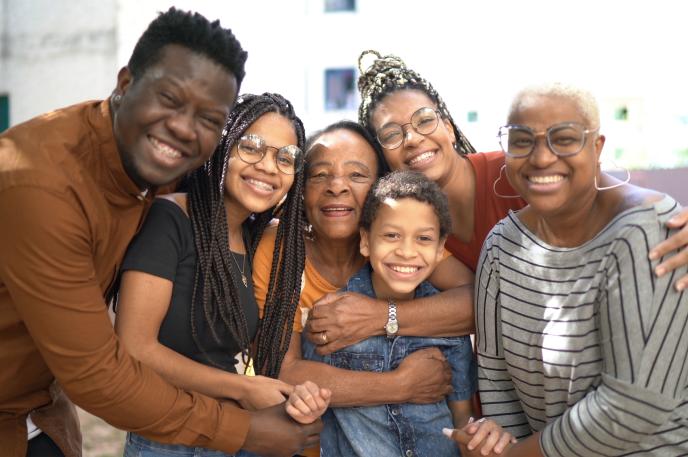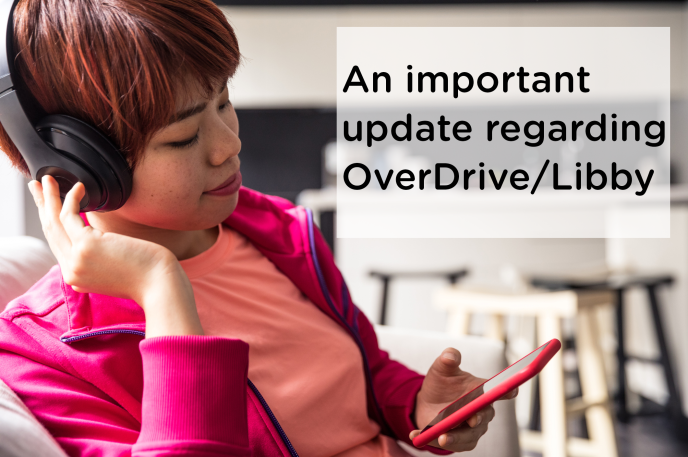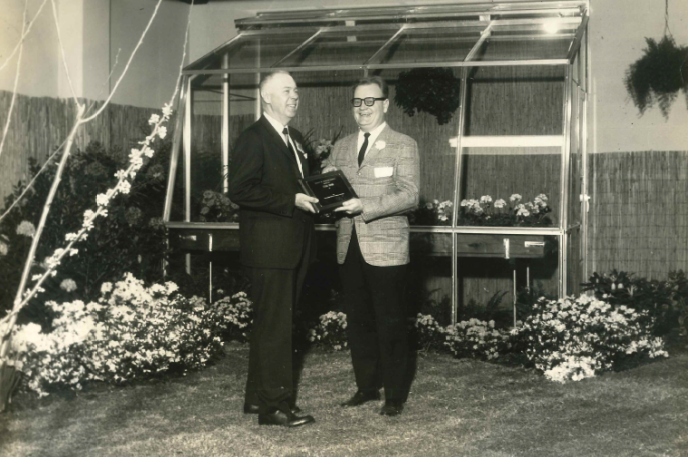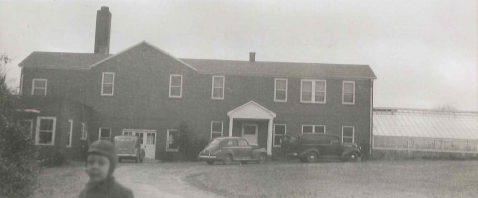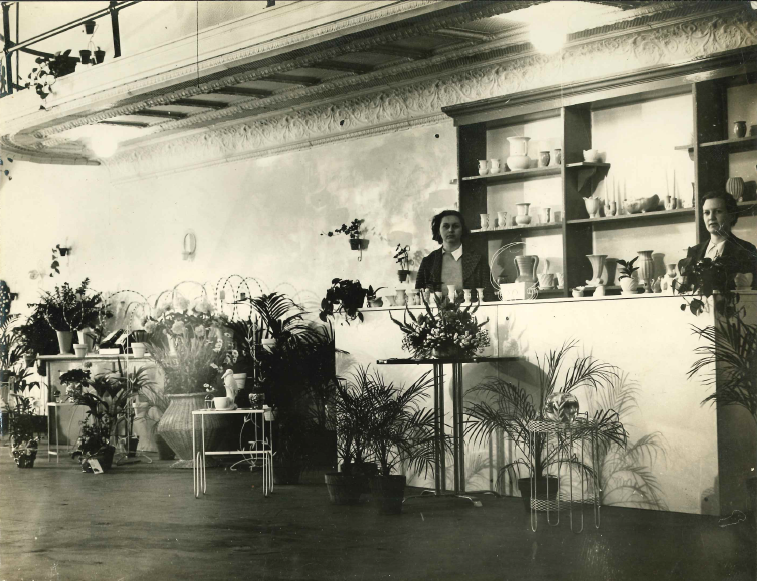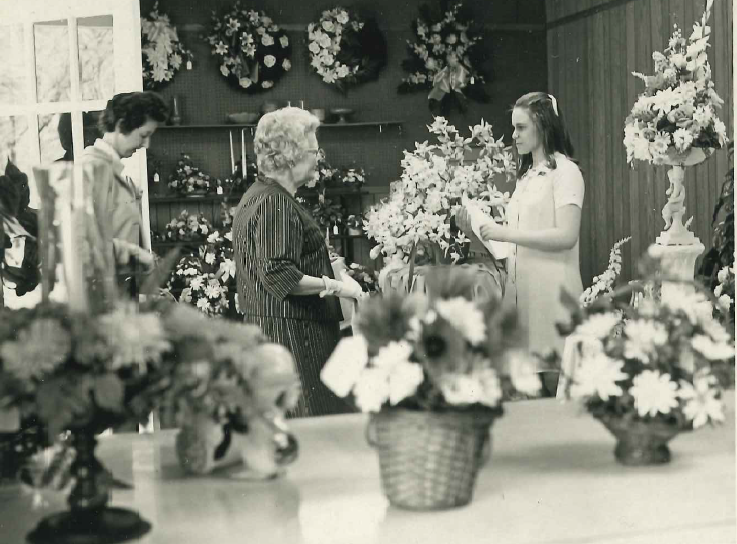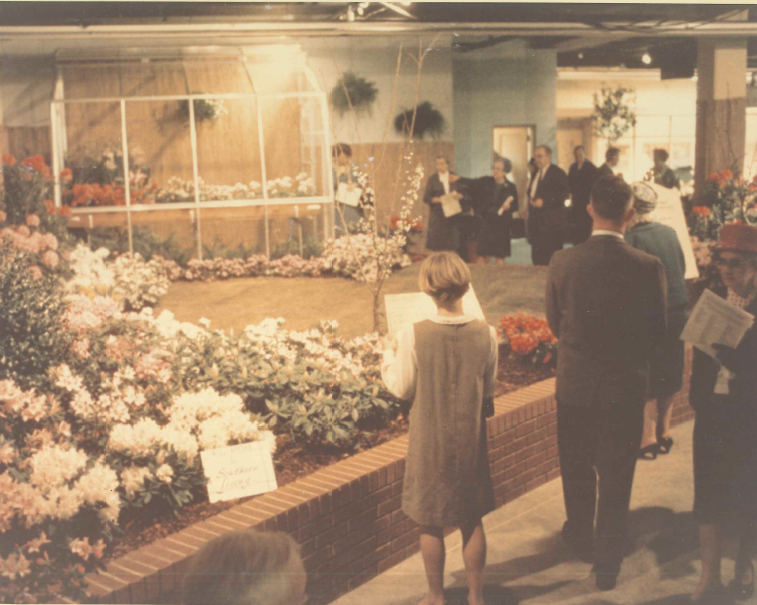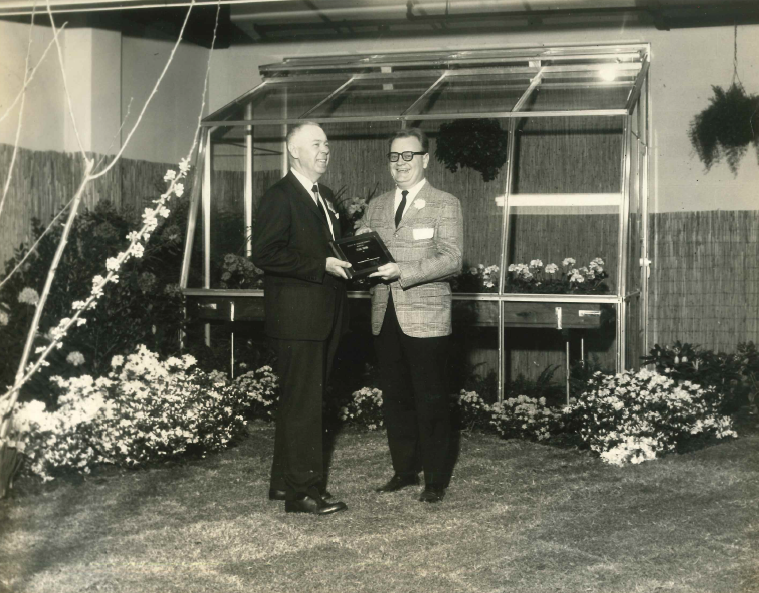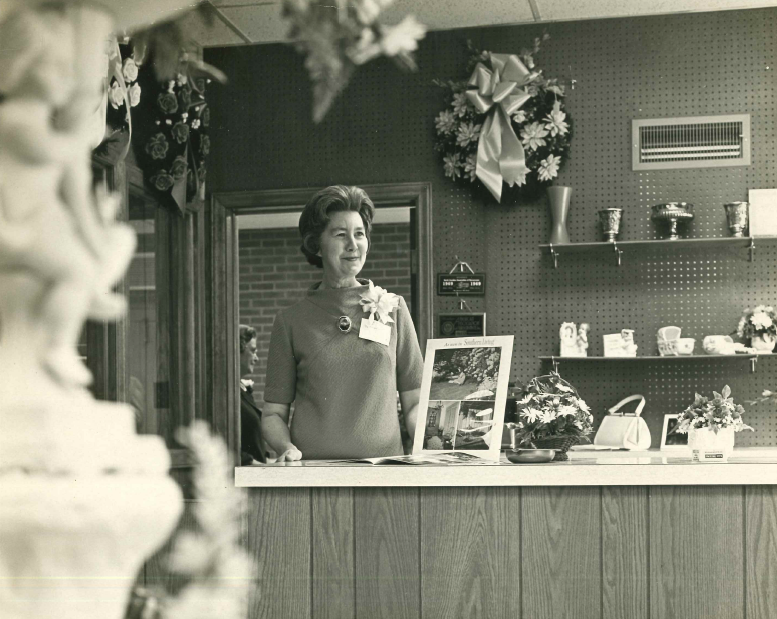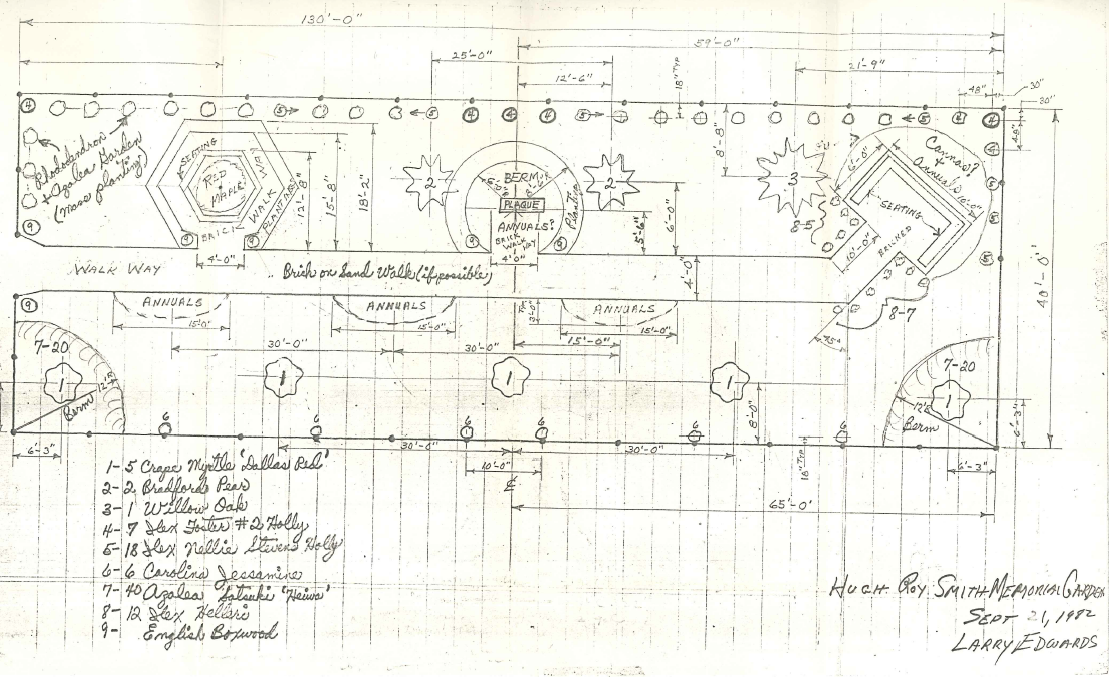Desplácese hacia abajo para ver la versión en español
Don’t have a Charlotte Mecklenburg Library card? Know someone who doesn’t have one either? The Library offers millions of resources including books, music, movies, creative materials, digital resources, programs (outdoor and virtual) – all for FREE with a Charlotte Mecklenburg Library card. So, now that you know what a Library card can get you, the next question is: what are you waiting for?
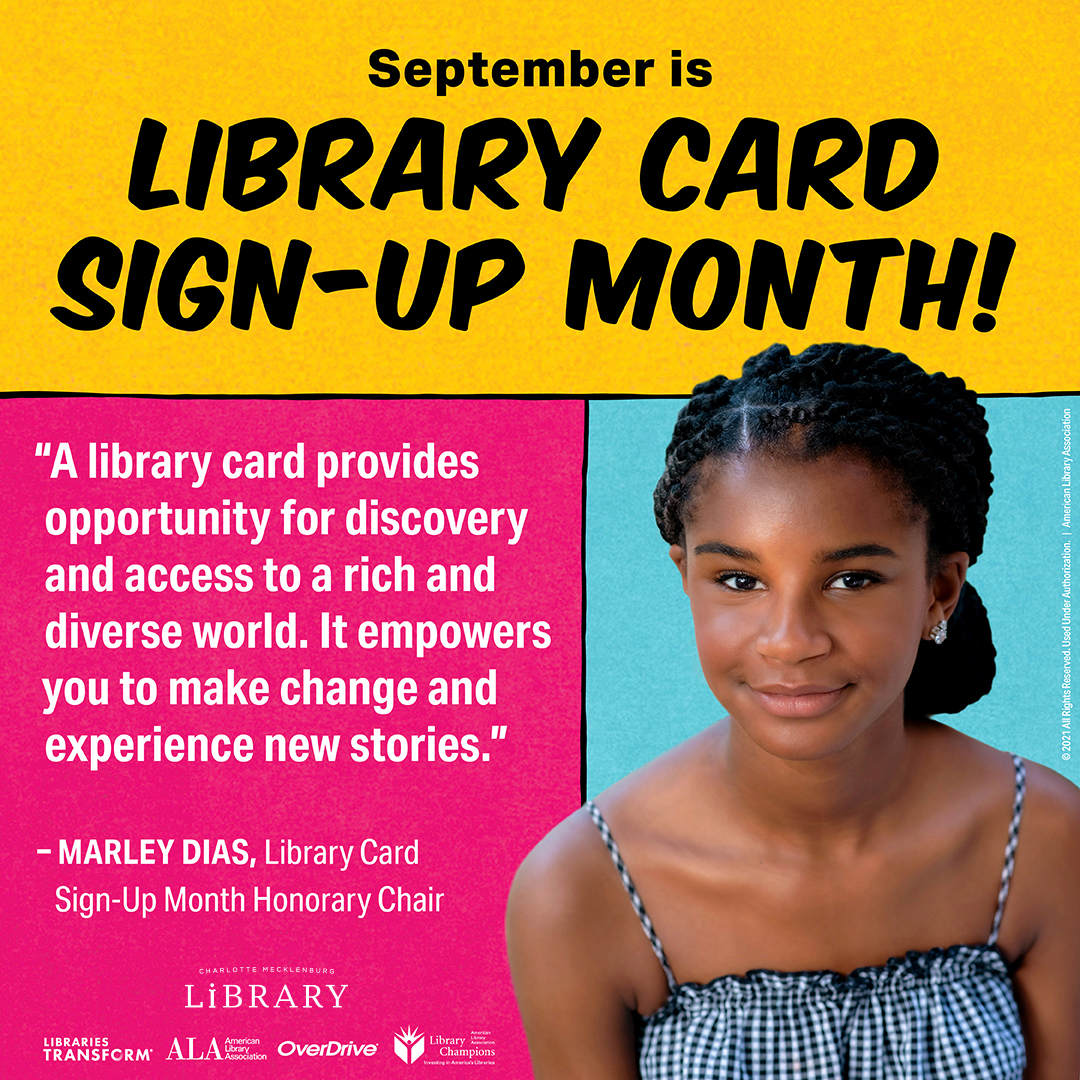 September is Library Card Sign-up Month, a time when libraries encourage community members (parents, caregivers, students – everyone) to sign up for a library card as the first step towards academic achievement and lifelong learning. This year, the American Library Association (ALA) installed Marley Dias, author, executive producer and founder of #1000BlackGirlBooks as Library Card Sign-up Month Honorary Chair to promote the value of a library card to the entire community. We all are unique, with varied experiences and cultures, but one thing that unites us is a drive to learn and grow as people. Libraries are great equalizers and having a library card allows everyone to fairly gain access to knowledge.
September is Library Card Sign-up Month, a time when libraries encourage community members (parents, caregivers, students – everyone) to sign up for a library card as the first step towards academic achievement and lifelong learning. This year, the American Library Association (ALA) installed Marley Dias, author, executive producer and founder of #1000BlackGirlBooks as Library Card Sign-up Month Honorary Chair to promote the value of a library card to the entire community. We all are unique, with varied experiences and cultures, but one thing that unites us is a drive to learn and grow as people. Libraries are great equalizers and having a library card allows everyone to fairly gain access to knowledge.
Signing up for a Library card is easy and anybody can do it. CLICK HERE to sign up for a Library card and download the CMLibrary mobile app on your tablet or smartphone. Use the app to place holds, access resources and much more.
In a world rapidly moving to an online format, access to digital resources and educational materials is more important than ever before. With limits on in-person gatherings and adjusted work and school schedules, living room sofas, kitchens and bedrooms have transformed into workspaces. But what hasn’t changed is the need for information – for education, work or leisure activities. In honor of our mission to improve lives and build a stronger community, the Library encourages everyone in Mecklenburg County to sign up for a Library card to gain access to a wealth of books, media and invaluable digital resources. All for FREE!
FREE Digital Resources
The Library is a tremendous one-stop shop, not just for books but for digital resources and so much more. You can access virtual tutoring and homework help for children through Tutor.com. You can find the resources to support a new (or existing) business venture with LinkedIn Learning. Maybe you want to perfect an existing skill - or learn a new one - with Universal Class or learn a new language with Transparent Language. When you have a Charlotte Mecklenburg Library card, you can access a multitude of online resources for FREE.
Are you someone who enjoys watching movies or listening to music? Film and music buffs can benefit from a Library card, too. With the kanopy, OverDrive/Libby, hoopla and Freegal Music apps – again, available for FREE with a Library card, you can stream or download films, documentaries and the newest songs.
ACCESS RESOURCES
Value Like No Other
Are you curious about how much money a Library card can really save you? $100? $300? Even up to $1,000! Subscription services can be pricey and tend to add up over the course of a calendar year, not to mention how much you might spend on books, magazines and music. There’s no need to pay for subscription services ever again. See how much you can save with the Library by using the Library Value Calculator. Input the number of books, magazines, DVDs, music and resources you’ve purchased or used in a year, and you’ll be amazed at how much you could save by switching to the Library. The numbers don’t lie; a Library card is a great value!
Online Programming from the Library
While our branches are open with limited services, the Library is always here to support the community online, 24/7. Did you know that you can continue to participate in Library programming while staying home? Join us for a virtual storytime with your family or receive resume help all from the comfort of your couch. The Library offers a wide range of virtual programming for children, teens and adults on a daily basis.
See our listing of upcoming programs below.
FOR MORE INFORMATION AND TO REGISTER FOR PROGRAMS CLICK HERE
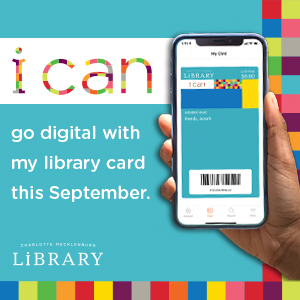 Sign up Today
Sign up Today
Signing up for a Library card is easy. CLICK HERE to sign up for one and download the CMLibrary mobile app on your smartphone or tablet for immediate access to place holds, access resources and much more.
So, now that you know everything you can do with your Library card, what are you waiting for? Join Charlotte Mecklenburg Library and get your Library card today!
--
This blog was written by Darrell Anderson, marketing and communications specialist for Charlotte Mecklenburg Library.
¿No tiene la tarjeta de biblioteca Charlotte Mecklenburg? ¿Conoce a alguien que tampoco la tenga? La biblioteca ofrece millones de recursos, como libros, música, películas, materiales creativos, recursos digitales y programas (al aire libre y virtuales), todo SIN CARGO, mediante la tarjeta de biblioteca Charlotte Mecklenburg. Ahora que sabe todo lo que ofrece la tarjeta de biblioteca, la pregunta es: ¿qué está esperando?
Septiembre es el mes de las tarjetas de biblioteca, una época en la que las bibliotecas alientan a los miembros de la comunidad (padres, cuidadores, estudiantes, ¡todo el mundo!) a que soliciten una tarjeta de biblioteca como primer paso hacia el éxito académico y el aprendizaje continuo. Este año, la Asociación de Bibliotecas de los Estados Unidos (ALA) designó a Marley Dias, autora, productora ejecutiva y fundadora de #1000BlackGirlBooks como presidenta honoraria del mes de las tarjetas de biblioteca con el fin de promover el valor de las tarjetas de biblioteca en toda la comunidad. Todos somos únicos y tenemos experiencias y culturas diversas, pero algo que nos une es el deseo de aprender y desarrollarnos como seres humanos. Las bibliotecas son un gran elemento igualador, y contar con una tarjeta de biblioteca permite que todos tengan un acceso adecuado al conocimiento.
Solicitar la tarjeta de biblioteca es fácil y cualquiera puede hacerlo. HAGA CLIC AQUÍ para solicitar una tarjeta de biblioteca y descargar la aplicación móvil CMLibrary en su tableta o teléfono inteligente. Utilice la aplicación para hacer reservas, acceder a recursos y mucho más.
En un mundo que se encuentra en rápida transición hacia los formatos en línea, el acceso a recursos y materiales educativos digitales es fundamental. Como consecuencia de las restricciones a las reuniones presenciales y los cambios en los horarios escolares y laborales, el sofá de la sala de estar, la cocina y la habitación se han convertido en espacios de trabajo. Sin embargo, la necesidad de obtener información para educarse, trabajar o entretenerse no ha cambiado. En honor a nuestra misión de mejorar vidas y forjar una comunidad más fuerte, la biblioteca alienta a todos los vecinos del condado de Mecklenburg a que soliciten una tarjeta de biblioteca para acceder a una gran cantidad de libros, medios e invaluables recursos digitales. ¡Todo SIN CARGO!
Recursos digitales GRATUITOS
La biblioteca es una estupenda tienda integral, no solo para acceder a libros, sino a recursos digitales y mucho más. Puede acceder a tutorías virtuales y asistencia escolar para niños a través de Tutor.com. También puede obtener recursos para impulsar un negocio nuevo (o uno existente) con LinkedIn Learning. O tal vez desea perfeccionar una habilidad existente —o aprender una nueva— con Universal Class, o aprender un idioma con Transparent Language. Con su tarjeta de biblioteca Charlotte Mecklenburg, podrá acceder a una infinidad de recursos en línea SIN CARGO.
¿Le gusta ver películas o escuchar música? Los cinéfilos y los melómanos también pueden sacarle provecho a una tarjeta de biblioteca. Con las aplicaciones Kanopy, OverDrive/Libby, hoopla y Freegal Music, disponibles SIN CARGO con su tarjeta de biblioteca, puede reproducir o descargar películas, documentales y las canciones más recientes.
ACCEDA A RECURSOS
Valor sin precedentes
¿Acaso se pregunta cuánto dinero puede ahorrar si tiene una tarjeta de biblioteca? ¿$100? ¿$300? ¡Hasta $1,000! Los servicios con suscripción pueden ser costosos y se van sumando durante el año, por no mencionar las sumas que podría gastar en libros, revistas y música. Nunca más deberá pagar servicios con suscripción. Descubra cuánto puede ahorrar gracias a la biblioteca mediante la calculadora de valor de la biblioteca. Introduzca la cantidad de libros, revistas, DVD, música y recursos que ha comprado o usado en un año, y le sorprenderá todo lo que puede ahorrar si comienza a usar la biblioteca. Los números no mienten; ¡el valor de una tarjeta de biblioteca es incomparable!
Programas en línea de la biblioteca
Mientras nuestras sucursales ofrecen servicios limitados, la biblioteca siempre está aquí para apoyar a la comunidad en línea, todos los días, las 24 horas. ¿Sabía que puede seguir participando en los programas de la biblioteca mientras se queda en casa? Acompáñenos a disfrutar de un cuento virtual con su familia o reciba ayuda para crear su currículum, todo desde la comodidad de su hogar. La biblioteca ofrece una amplia variedad de programas virtuales para niños, adolescentes y adultos todos los días.
Consulte el detalle de nuestros próximos programas a continuación.
PARA OBTENER MÁS INFORMACIÓN Y REGISTRARSE EN PROGRAMAS, HAGA CLIC AQUÍ
Regístrese hoy mismo
Solicitar la tarjeta de biblioteca es fácil. HAGA CLIC AQUÍ para pedir la suya y descargar la aplicación móvil CMLibrary en su tableta o teléfono inteligente, que le permitirá hacer reservas, acceder a recursos y mucho más.
Ahora que sabe todo lo que puede hacer con su tarjeta de biblioteca, ¿qué está esperando? ¡Regístrese en la biblioteca Charlotte Mecklenburg y obtenga su tarjeta de biblioteca hoy mismo!
--
Este blog fue escrito por Darrell Anderson, especialista en marketing y comunicaciones de la biblioteca Charlotte Mecklenburg.


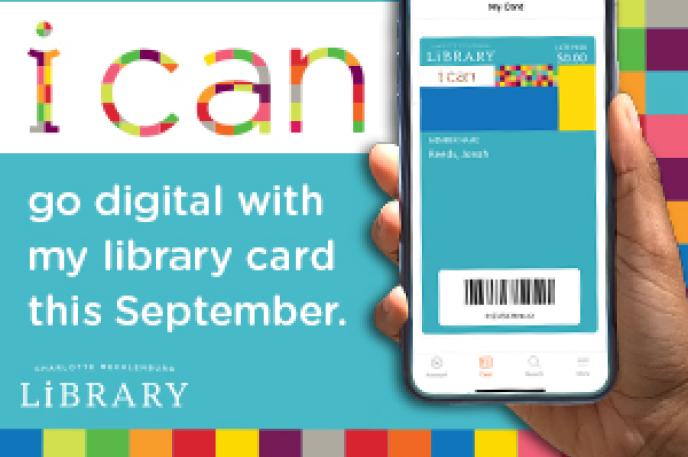
 September is Library Card Sign-up Month, a time when libraries encourage community members (parents, caregivers, students – everyone) to sign up for a library card as the first step towards academic achievement and lifelong learning. This year, the American Library Association (ALA) installed Marley Dias, author, executive producer and founder of
September is Library Card Sign-up Month, a time when libraries encourage community members (parents, caregivers, students – everyone) to sign up for a library card as the first step towards academic achievement and lifelong learning. This year, the American Library Association (ALA) installed Marley Dias, author, executive producer and founder of  Sign up Today
Sign up Today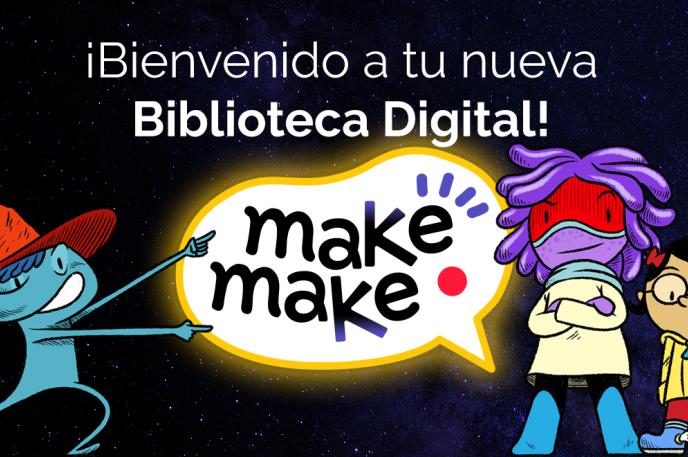
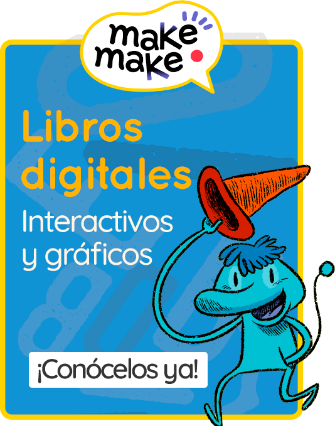 MakeMake offers a careful selection of high-quality books from over 50 renowned Latin American publishers to promote literacy comprehension, vocabulary, and reading fluency in our youngest readers and teens. Spanish speakers and learners can engage with books based on reading level and interest. Interactive books that stimulate participation are available for emerging readers, while older readers can choose from picture books, comics, storybooks, novels, and non-fiction books. Our collection includes classics as well as new authors for a varied reading diet. Digital literacy activities accompany many of the books.
MakeMake offers a careful selection of high-quality books from over 50 renowned Latin American publishers to promote literacy comprehension, vocabulary, and reading fluency in our youngest readers and teens. Spanish speakers and learners can engage with books based on reading level and interest. Interactive books that stimulate participation are available for emerging readers, while older readers can choose from picture books, comics, storybooks, novels, and non-fiction books. Our collection includes classics as well as new authors for a varied reading diet. Digital literacy activities accompany many of the books. 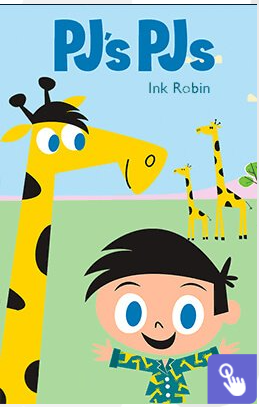


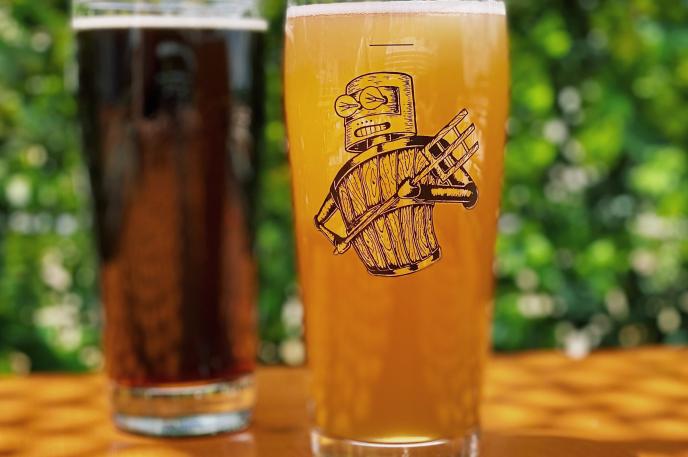
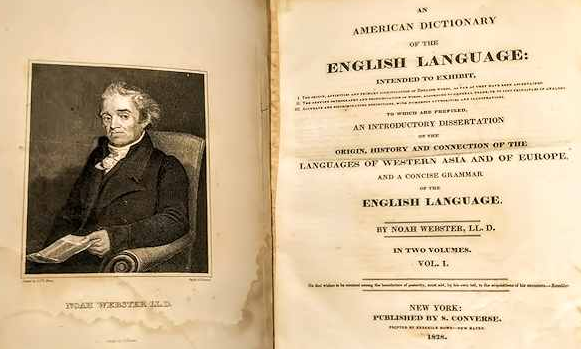 In his 1828 dictionary, Noah Webster of Connecticut defined beer as a beverage made "from any farinaceous grain, but generally from barley," but added, "beer is a name given in America to fermenting liquors made of various other materials." Barley was hard to come by, especially in the South, so North Carolinians tried fermenting apples, persimmons, and molasses into something fizzy with a kick. “My wife makes excellent beer,” began one story in the Catawba Journal (12/26/1826), showing what Americans called beer was usually made at home - and by women.
In his 1828 dictionary, Noah Webster of Connecticut defined beer as a beverage made "from any farinaceous grain, but generally from barley," but added, "beer is a name given in America to fermenting liquors made of various other materials." Barley was hard to come by, especially in the South, so North Carolinians tried fermenting apples, persimmons, and molasses into something fizzy with a kick. “My wife makes excellent beer,” began one story in the Catawba Journal (12/26/1826), showing what Americans called beer was usually made at home - and by women.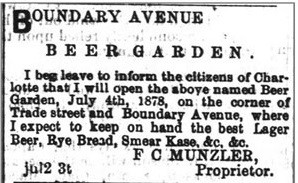 In the 1860s, Martin Munzler became the first successful brewer in Mecklenburg County. He evidently brought the craft of making lager beer with him from his native Bavaria. During the Civil War years, he ran advertisements offering top dollar for barley. After the war, he, and then later his son, Frederick, sold their fermented product in a typically German setting: the beer garden, an outdoor place where families could gather and men could drink beer. It was located at the edge of town near the present-day intersection of McDowell and E Trade St. (Houser, n.d)
In the 1860s, Martin Munzler became the first successful brewer in Mecklenburg County. He evidently brought the craft of making lager beer with him from his native Bavaria. During the Civil War years, he ran advertisements offering top dollar for barley. After the war, he, and then later his son, Frederick, sold their fermented product in a typically German setting: the beer garden, an outdoor place where families could gather and men could drink beer. It was located at the edge of town near the present-day intersection of McDowell and E Trade St. (Houser, n.d) Atlantic Ale and Beer was made in Charlotte in the 1930s, but from World War II until the craft beer era, the beer drinkers of Mecklenburg chose from the same national and regional brands as everybody else.
Atlantic Ale and Beer was made in Charlotte in the 1930s, but from World War II until the craft beer era, the beer drinkers of Mecklenburg chose from the same national and regional brands as everybody else.
